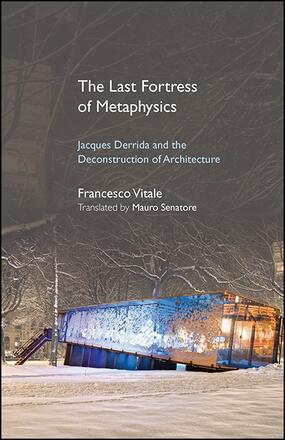
The Last Fortress of Metaphysics
Jacques Derrida and the Deconstruction of Architecture
Alternative formats available from:
Examines the relationship of Derrida’s writings on architecture to his methodology of deconstruction and to deconstrutivism in architecture.
Description
Between 1984 and 1994 Jacques Derrida wrote and spoke a great deal about architecture both in his academic work and in connection with a number of particular building projects around the world. He engaged significantly with the work of architects such as Bernard Tschumi, Peter Eisenman, and Daniel Libeskind. Derrida conceived of architecture as an example of the kind of multidimensional writing that he had theorized in Of Grammatology, identifying a rich common ground between architecture and philosophy in relation to ideas about political community and the concept of dwelling. In this book, Francesco Vitale analyzes Derrida's writings and demonstrates how Derrida's work on this topic provides a richer understanding of his approach to deconstruction, highlighting the connections and differences between philosophical deconstruction and architectural deconstructivism.
Francesco Vitale is Professor of Aesthetics at the University of Salerno, Italy. He is the author of Biodeconstruction: Jacques Derrida and the Life Sciences, also published by SUNY Press, and the author and editor of several books in Italian on Derrida and contemporary French philosophy. Mauro Senatore is a British Academy Fellow at Durham University in the United Kingdom and Adjunct Professor of Contemporary French Philosophy at the Instituto de Humanidades, Universidad Diego Portales, Santiago, Chile. He is the author of Germs of Death: The Problem of Genesis in Jacques Derrida, also published by SUNY Press.
Reviews
"Although there has been some discussion of the intersection of deconstruction and architecture in the past, mostly among architects and architectural critics, Vitale's work is distinguished by the fact that it is written by a true philosopher who has a much more acute sense than has usually been the case of the philosophical underpinnings of Derrida's exchanges with Tschumi, Eisenman, and others. Vitale is throughout concise, precise, insightful, and often brilliant." — Geoffrey Bennington, author of Interrupting Derrida